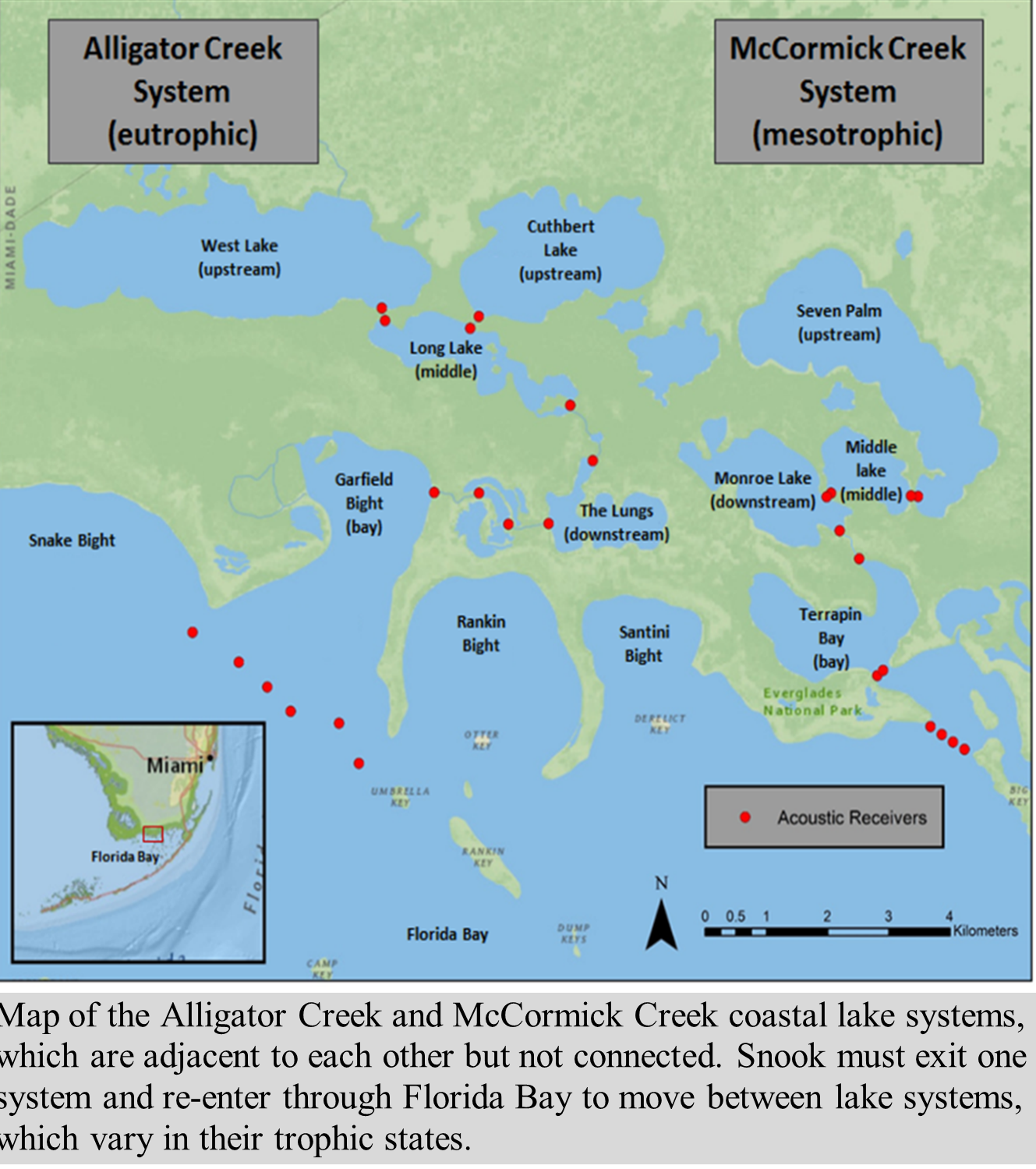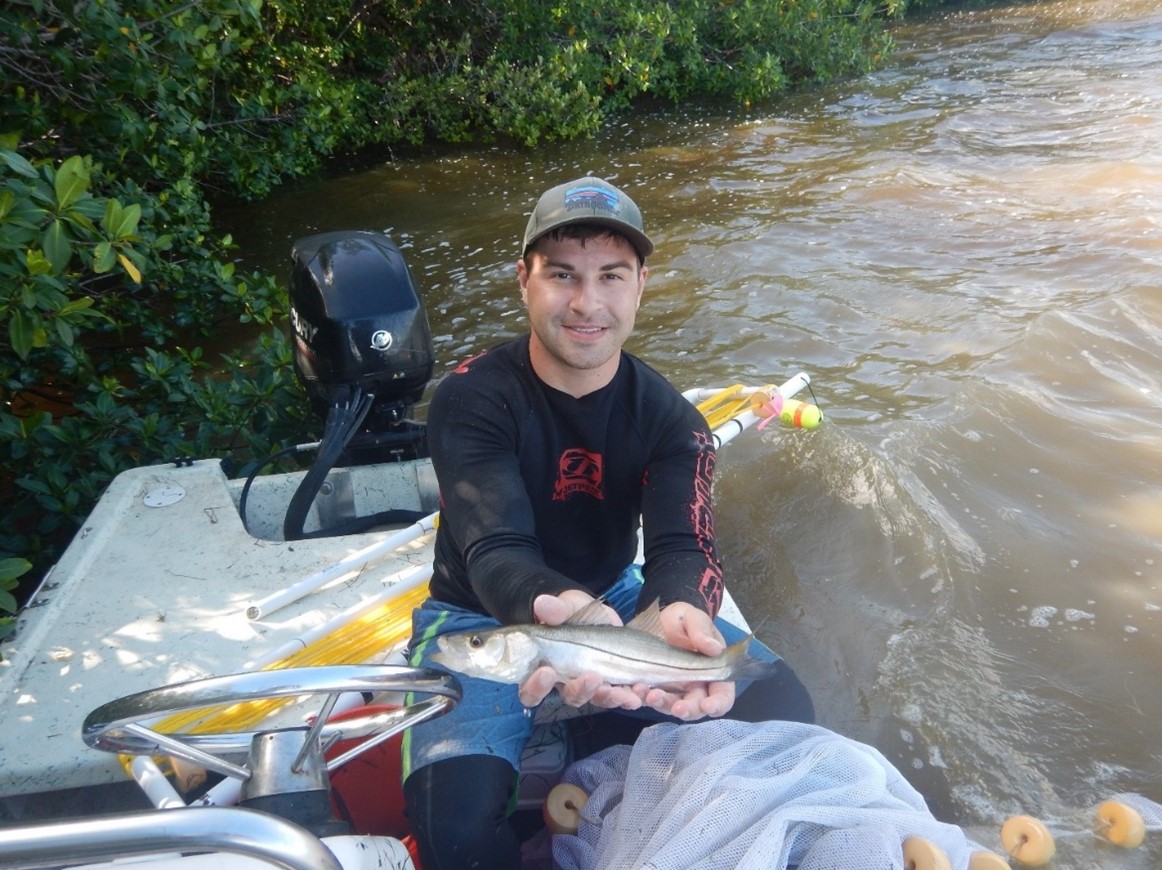The Everglades and its coastal lake systems have been impacted over the years by human activity, causing nutrient enrichment known as “eutrophication” and reduced freshwater inflows. An excess of nutrients in our water bodies can pose risks to both human health and the environment. These changes affect coastal ecosystems and habitat resources, ultimately affecting fish populations.
Cody Eggenberger, a PhD fellow with the NSF CREST Center for Aquatic Chemistry and Environment, is managing a study on how recreational sport fish are impacted by environmental conditions in two Florida coastal lake chains; Alligator Creek and McCormick Creek. These two coastal systems differ in freshwater inflows and nutrient levels, both receiving less than 50% of the freshwater that they did historically. With a team of scientists in the Coastal Fisheries Research Lab, Common Snook movement patterns are being tracked using acoustic telemetry methods to understand their habitat selection. Eggenberger found that Snook moved primarily within the lowest salinity zones upstream, and spent less time in the lakes of the McCormick Creek system compared to those in the more nutrient-rich Alligator Creek system.
These differences in habitat use patterns may be driven in part by the hypoxic conditions that commonly occur in the eutrophic zones of the Alligator Creek system. Low-oxygen, “hypoxic” events are mainly caused by elevated nutrient levels that persist in the environment. Since Common Snook are intolerant to waters with low dissolved oxygen levels, Eggenberger believes that the hypoxic events in the Alligator Creek system could be forcing Snook in this system to feed on less preferred prey, and rely on more diverse resource types overall. Further study into the hypoxic events as drivers of Snook habitat use is underway, as Eggenberger’s team gathers information to better predict the effects of hydrologic variation, restoration, and climate change on recreational fisheries in coastal estuaries.


The NSF CREST Center for Aquatic Chemistry and Environment is housed within the Institute of Environment, a Preeminent Program at Florida International University.